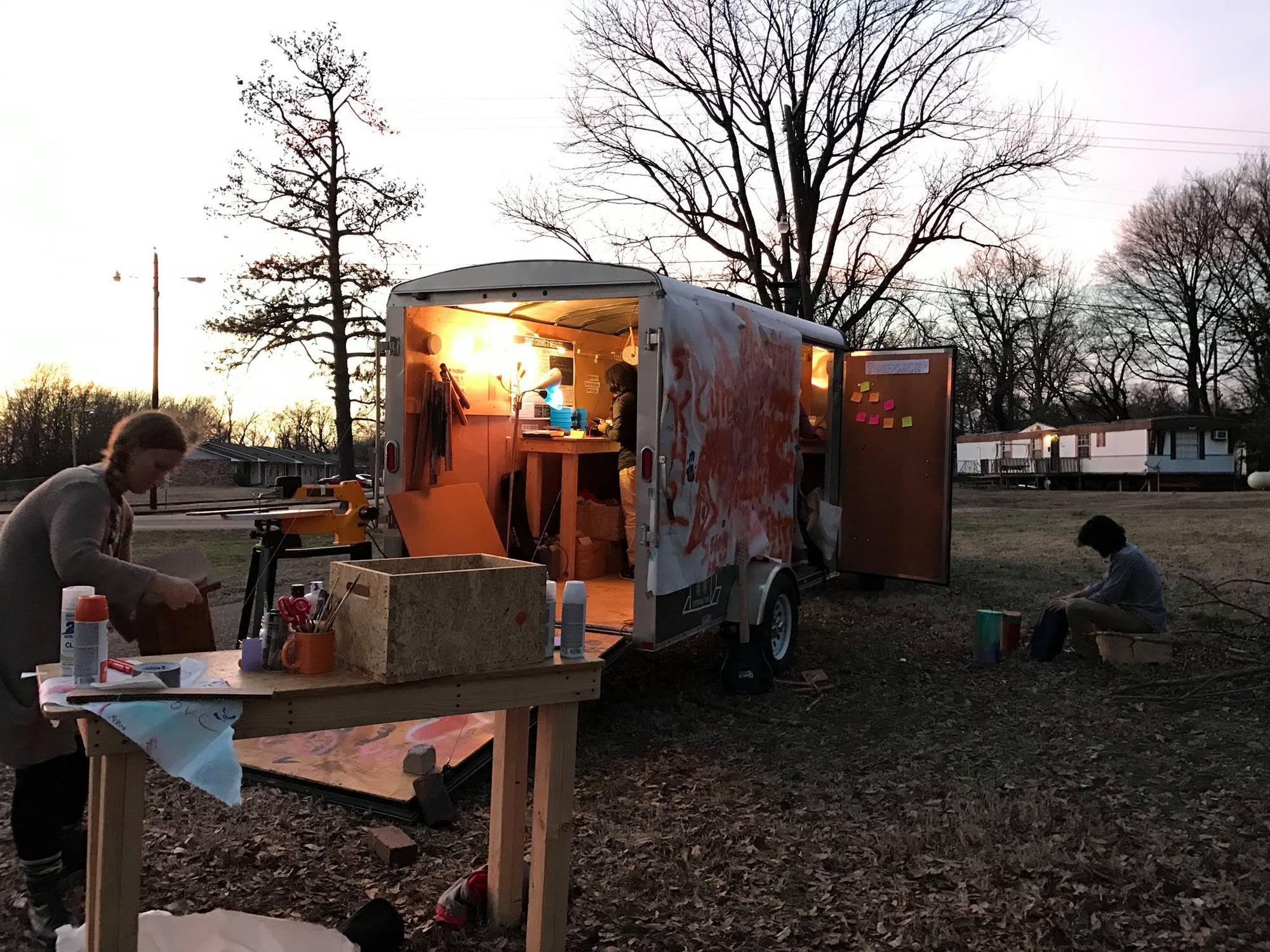Course Overview

Maker Trailer in action in the Mississippi
Delta
At Olin, students develop an understanding of how engineering can be a “people to people” process. The people who are undertaking engineering efforts and those who are affected by the outcomes are oftentimes part of complex social systems that do not serve all people equitably. DREAM students learn how to recognize and respond to inequalities in both “close-to-home” contexts and less-familiar realms. The course examines and extends “the maker movement,” with a critical eye toward addressing empowerment issues entrenched in maker cultures. The maker movement is, essentially, a growing community of people and resources aiming to support everyone feeling empowered to open and remake the engineered world around them (typically with the help of some computational, electronic, or mechanical tool). DREAM students will gain a deeper understanding of how the maker movement has some properties that can leverage hands-on learning to unify diverse sets of people and some properties that serve as a divisive forces between groups. The project-based course will prepare students to identify and harness properties of tools, activities, people, and spaces associated with the maker movement to enable a target group to feel empowered to make things, make a difference, and make their own way.
The course examines how “empowerment and making” is experienced by individuals that represent a variety of: races, colors, nationalities, ethnic origins, ancestries, ages, religions, ability levels, sexes, gender identities, sexual orientation, military involvements, and/or socio-economic statuses. Classes are structured to expose students to a variety of methods for making (with high- and low-tech) and dimensions of (dis)empowerment. The first four of five class meetings feature case studies, videos, guests and “make breaks” (sometimes featuring fruit and MaKey MaKeys). The class takes field trips to Boston (and sometimes RI) area community technology centers to experience making outside of Olin’s campus. Off-campus (young) makers usually visit a class session to experience hands-on activities designed by DREAM students. Some assignments are assessed by outside experts, selected to represent perspectives that are not commonplace at Olin.
DREAM culminates with a team project that results in a “resource for empowerment and making.” Students can choose to take on challenges presented by guest speakers or partner organizations (such as the Boston Childrens Museum). Students are also welcome to craft their own final project trajectory, determining appropriate levels of computational, electronic, and/or mechanical components for the desired context. More about the course can be found at http://dream.olin.edu